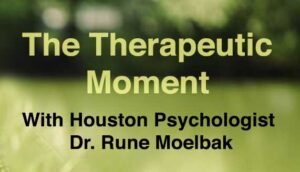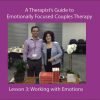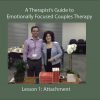Romantic partners often have different definitions of intimacy and closeness. Someone might think that if only we had sex more often our relationship issues would be solved, while another might yearn to have deeper or more meaningful conversations and to really know each other. Over time if such differences are not talked about, each person is going to feel a gap or absence in their relationship.
Another frequent situation is that one partner is actually quite happy and doesn’t understand why the other partner always appears to be unhappy. Such a situation can often lead the unhappy partner to criticize or complain, and the happy-enough partner to attempt to change themselves or act in ways that feel unnatural to them in order to fit the bill of what their partner wants. Unfortunately in this pattern, since a cat cannot become a dog, the dog will often revert to being a cat, and the chronically dissatisfied partner will constantly feel let down and angry.
Are You Responsible for Your Own Happiness?
From an emotionally-focused therapy perspective you are responsible for your own feelings – at least to some extent. Nobody can ever be fully charged with the task of making another person happy. However, at the same time, no one in a relationship is ever fully responsible for their feelings. We seek partnerships in order to get help, support, and emotional fulfillment from each other, and good relationships do involve a sense of healthy emotional dependency and interdependency.
The trick to a happy relationship is therefore never to blame one’s partner fully for the way one is feeling. Our partner might be the trigger of our feelings, but our feelings have a personal history and invoke vulnerabilities that are uniquely ours. Shifting from blaming our partner to engaging in self-reflection and taking ownership of our personal history is therefore often a good first step for someone who is feeling unfulfilled. Taking this kind of personal ownership will both be empowering, because it gives us back some control, and help us express our needs and feelings in ways that our partner can hear. When we share ourselves rather than what’s wrong with our partner, we make a choice to enter more fully into our relationship, and this means taking a step in the right direction.
However, feeling happier in a relationship is not just to do work on oneself. Because a fulfilling relationship involves a sense of healthy dependency or interdependence, there does have to be another person who listens and cares when you express your feelings. As a partner to someone who feels unfulfilled, your response can therefore not simply be that it is up to the other person to be responsible for their own happiness. This stance, while very common in our individualistic culture, minimizes the importance of the relationship as the secure base from which individual happiness is even possible. As humans – we need others – this is part of our biological design, and when our relationship is not secure, WE as individuals are not secure.
How to Solve the Problem of Relationship Unhappiness
Oftentimes the missing piece or misstep I see in my work as a couples therapist is that the unhappy partner complains rather than self-reflects. They share what’s wrong with their partner rather than the pieces of their personal history that get triggered by their partner. This then puts their partner in a position of having to defend themselves, and in this state of self-preservation, the criticized partner can no longer be empathic and express care or concern.
Another frequent misstep is that the partner who hears the complaint goes into problem-solving mode. They make suggestions like: If you are unhappy at work, why don’t you just quit your job? Or: If you are feeling lonely or bored, why don’t you go out more with some of your friends?
While well intentioned, these attempts at problem-solving often miss the mark of what their partner is really saying or needing. What is often called for instead of the offering up of solutions, is to share the underlying emotions that motivate this attempt to find a solution.
When the problem-solving partner looks a little deeper inside themselves they will often notice that seeing their partner unhappy distresses them and makes them feel sad. They care about their partner’s state of mind, and about the relationship, and this is exactly what their partner needs to know and feel.
Instead of sharing solutions to problems, the solution therefore lies in the partner sharing themselves.
They must let the other person know that their well-being is important to them, that they are impacted by their partner, and that what they are hearing is hard to hear. They must share their internal reaction, not just use these internal reactions as fuel for problem-solving.
By doing so, they meet the unhappy partner exactly where they are and often provide the anti-dote to the unhappiness, loneliness, and disconnection, which as it turns out is validation, reassurance, understanding, or a sense of being emotionally connected.
Why Seek Couples Therapy?
Because the steps of a successful couple dance often require the intentional coordination of two people and cannot simply be done by one person alone, couples often aren’t able to shift out of their habitual patterns without the help of a third party. It is in this regard that couples therapy can often be immensely helpful. The couples therapist can then serve as the coach or dance choreographer who helps each partner take new steps and helps the couple coordinate their efforts so they can produce a new pattern, dance, or result. Couples can then be helped not to be different people but to share themselves in new ways and respond to each other in ways that are more effective. The outcome will be greater overall fulfillment both as individuals and as a couple, for after all you cannot have one without the other.
About Me: I am Rune Moelbak, Ph.D., psychologist and emotionally-focused couples therapist in Houston, Texas. Visit my therapy website to read more about how couples therapy can help you.

























